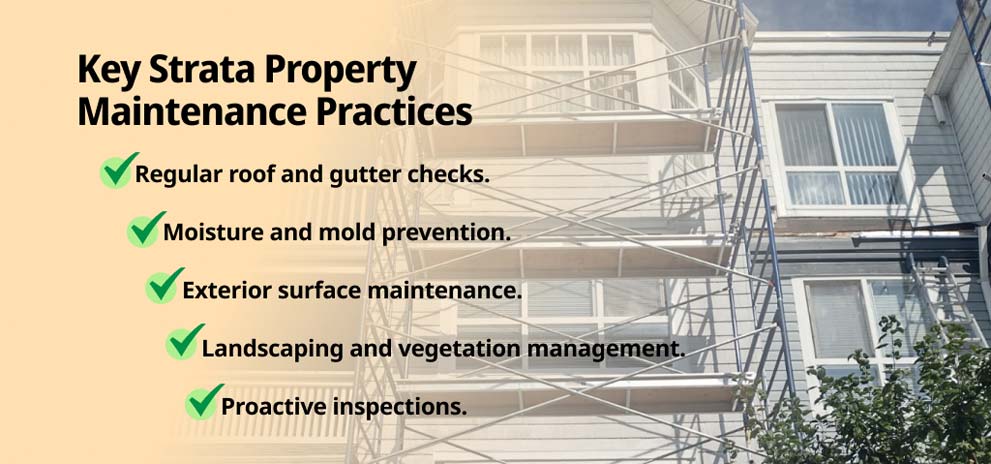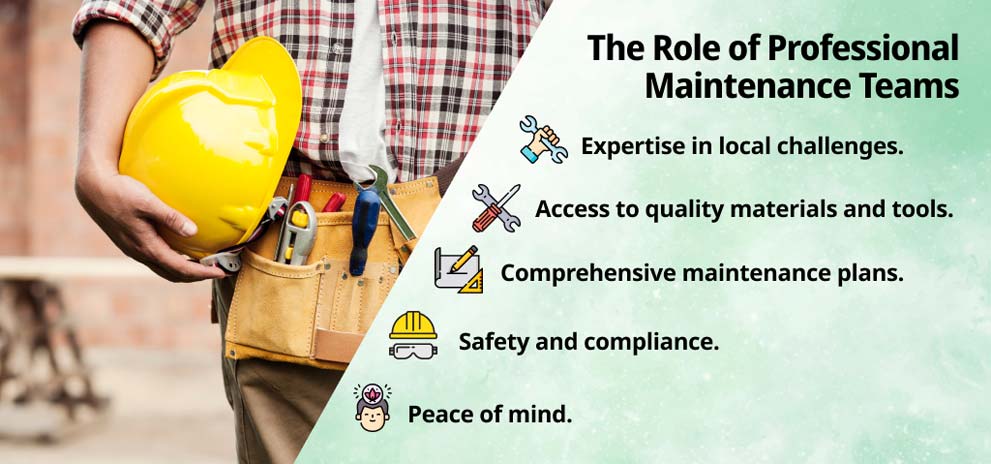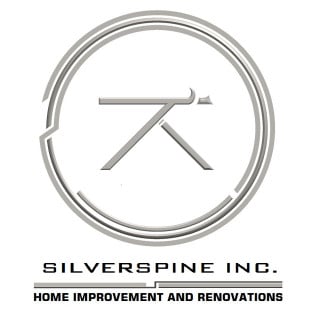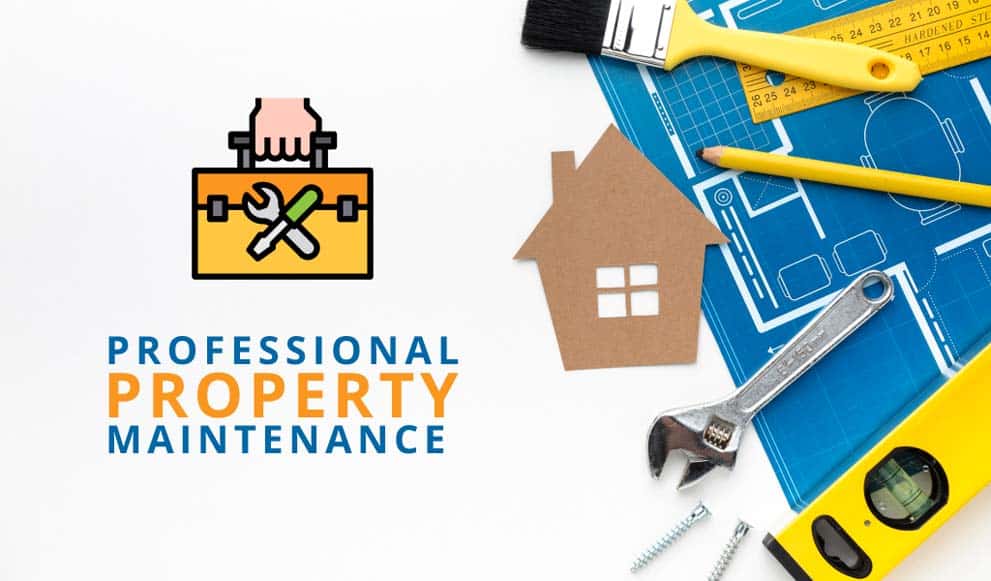Hey there, fellow North Vancouverites! At Silverspine Contracting, we’ve been navigating the unique challenges of our city’s climate for years, especially when it comes to strata buildings. We all know how unpredictable our weather can be – one minute it’s a downpour, and the next, it’s sunshine. This ever-changing weather doesn’t just affect our weekend plans but also has a significant impact on our beloved strata properties.
Ever noticed that slight dampness in the basement or those water streaks on the exterior walls after a heavy rain? That’s North Vancouver’s climate leaving its mark. But fret not! We’re here to share some insights and best practices on strata maintenance tailored just for our city. Whether you’re a property manager, a homeowner, or someone just curious about maintaining strata properties in our beautiful city, this guide is for you. Let’s dive in and explore how we can keep our buildings in top-notch condition, rain or shine!
Table of Contents
Key Takeaways
- Unique Climate Challenges: North Vancouver’s maritime climate, characterized by frequent rainfall and salty sea air, poses specific maintenance challenges for strata properties.
- Proactive Over Reactive: Regular inspections, tailored maintenance practices, and using the right materials are essential to anticipate and address potential issues before they escalate.
- Value of Expertise: Local professional maintenance teams bring invaluable knowledge and resources, ensuring strata properties remain in top condition while adhering to safety and compliance standards.
- Community Impact: Well-maintained strata properties enhance the neighbourhood’s aesthetic, boost property values, and foster community pride, benefiting all residents.
Understanding North Vancouver’s Climate and Its Impact on Strata Buildings
Living in North Vancouver is a dream for many, with its breathtaking landscapes and vibrant community. However, what many don’t realize is that our unique location between the mountains and the sea brings with it a set of challenges for our homes and buildings. The moist sea air, combined with our frequent rain showers, can accelerate wear and tear, especially in strata properties with shared spaces and responsibilities.
Now, you might wonder, “Why is strata maintenance any different here than, say, in a drier city?” Well, the continuous exposure to moisture can lead to issues like mold growth, wood rot, and even structural damage if not addressed promptly. And let’s not forget about the aesthetic aspect! No one likes to see water stains on their beautiful exterior or deal with damp interiors.
But here’s the silver lining: with the right maintenance practices, these challenges can be managed effectively. It’s not just about reacting to problems but proactively preventing them. And that’s where we come in. With our years of experience in North Vancouver, we’ve gathered a wealth of knowledge on how to best care for strata properties in our unique climate. In this guide, we’ll share some of those insights, tips, and best practices to help you ensure your property remains as stunning and sturdy as the day it was built.
Key Strata Property Maintenance Practices for North Vancouver Properties

Maintaining a strata property in North Vancouver isn’t just about fixing what’s broken; it’s about anticipating potential issues and addressing them proactively. Here are some key practices tailored to our unique environment:
1. Regular Roof and Gutter Checks
Given our frequent rainfall, roofs and gutters bear the brunt of the weather. Ensure gutters are free from debris like fallen leaves, which can cause blockages and lead to water pooling. Regularly inspect roofs for any signs of damage or wear, especially after heavy storms.
Tip: Consider installing gutter guards to reduce the frequency of cleaning and prevent blockages.
2. Moisture and Mold Prevention:
Basements and ground-level units are particularly susceptible to dampness. Invest in dehumidifiers for these areas and ensure adequate ventilation. Regularly check for signs of mold, especially in hidden areas like behind furniture or in closets.
Tip: Using moisture-resistant paint can help prevent mold growth on walls.
3. Exterior Surface Maintenance
The salty sea air, combined with rain, can be tough on building exteriors. Regularly clean and inspect the building’s facade, looking for signs of corrosion, especially on metal fixtures. Repaint and seal surfaces as needed to provide an added layer of protection.
Tip: Opt for marine-grade paints and finishes for areas exposed to salty air, especially if your property is close to the shoreline.
4. Landscaping and Vegetation Management
While our dense vegetation is beautiful, it needs to be managed to prevent building damage. Trim trees and shrubs regularly, especially those close to the building, to ensure they don’t trap moisture against walls or roofs.
Tip: Consider planting vegetation that requires less maintenance and is suited to our climate, like native plants.
5. Proactive Inspections
Instead of waiting for issues to arise, schedule regular inspections of the property. This includes checking the foundation, exterior walls, common areas, and shared amenities. By catching potential problems early, you can prevent costly repairs down the line.
Tip: Engage with local experts familiar with North Vancouver’s specific challenges. They’ll know exactly what to look for and can provide tailored solutions.
Remember, the key to effective strata maintenance in North Vancouver is a combination of regular checks, using the right materials, and understanding our unique environment. By implementing these practices, you can ensure your property remains in top condition, providing a safe and beautiful space for all residents.
The Role of Professional Maintenance Teams in Preserving Strata Value

When it comes to maintaining a strata property, especially in a unique environment like North Vancouver, the saying “a stitch in time saves nine” couldn’t be more accurate. While DIY fixes might seem cost-effective in the short term, the expertise of a professional team can make a world of difference in preserving and even enhancing the value of a strata property. Here’s why:
1. Expertise in Local Challenges
Professional maintenance teams, especially those based in North Vancouver, are well-versed with the specific challenges our climate poses. They bring a wealth of local knowledge, from understanding the effects of salty sea air to the best materials suited for our rainy environment.
Insight: A local expert can identify potential issues that might be overlooked by others, ensuring that small problems don’t escalate into major repairs.
2. Access to Quality Materials and Tools
Professional teams have access to high-quality, durable materials tailored for our climate. They also possess the right tools for every job, ensuring that repairs and maintenance are done efficiently and effectively.
Insight: Using the right materials can significantly extend the lifespan of repairs, offering long-term cost savings.
3. Comprehensive Maintenance Plans
Rather than addressing issues as they arise, professional teams offer comprehensive maintenance plans. These plans are designed to anticipate and prevent potential problems, ensuring that the property remains in top condition year-round.
Insight: Regular maintenance can significantly boost the resale value of strata properties, making them more appealing to potential buyers.
4. Safety and Compliance
Maintenance isn’t just about aesthetics; it’s also about safety. Professional teams are trained to spot safety hazards, from structural issues to electrical problems. Moreover, they ensure that all repairs and renovations comply with local building codes and regulations.
Insight: Ensuring compliance can prevent potential legal issues and liabilities down the line.
5. Peace of Mind
Perhaps the most significant value a professional team brings is peace of mind. Knowing that experts are taking care of your property, using the best materials, and following best practices allows property managers and owners to focus on other essential aspects of strata management.
Insight: Regular communication and updates from the maintenance team can foster trust and confidence among residents, enhancing community satisfaction.
So, while the upfront costs of hiring a professional maintenance team might seem higher, the long-term benefits in terms of preserved property value, safety, and peace of mind are immeasurable. After all, a well-maintained property is not just a pleasure to live in; it’s a valuable asset that deserves the best care.
Conclusion
North Vancouver, with its stunning landscapes and vibrant community, is a place many are proud to call home. But as we’ve explored, our unique environment poses specific challenges to strata properties. It’s not just about the beauty of our surroundings but ensuring our homes and buildings reflect that beauty in durability, safety, and value.
One key takeaway we hope you’ve gleaned from this guide is that maintenance isn’t a one-time task but an ongoing commitment. It’s about understanding the nuances of our climate, being proactive rather than reactive, and recognizing the immense value that expertise brings to the table.
But here’s a thought that many might not consider: well-maintained strata properties don’t just benefit individual owners. They uplift the entire community. A building in top condition enhances the neighbourhood’s aesthetic, boosts overall property values, and fosters a sense of pride among residents.
So, as you reflect on the insights shared, remember that investing in professional strata maintenance isn’t just about preserving bricks and mortar. It’s about preserving a legacy, a community, and a lifestyle that defines North Vancouver.
If you ever find yourself in need of guidance or expertise, know that we at Silverspine Contracting are always here to help, ensuring that our beloved city’s strata properties stand tall and proud, come rain or shine.
FAQs
1. How often should strata properties in North Vancouver undergo maintenance checks?
While the frequency of maintenance checks can vary based on the age and condition of the property, it’s generally recommended for strata properties in North Vancouver to undergo thorough inspections at least once a year. Given the unique climate challenges of the region, regular checks help in early detection of potential issues, ensuring the longevity and safety of the building.
2. Are there any specific materials recommended for strata properties in maritime climates like North Vancouver?
Yes, for regions with maritime climates like North Vancouver, it’s essential to use materials that are resistant to moisture and salt. Stainless steel, galvanized metal, and certain treated woods are commonly used. Additionally, using water-resistant paints and sealants can further protect the property from the effects of frequent rainfall and sea air.
3. How can strata property owners ensure compliance with local building and safety regulations in North Vancouver?
Strata property owners should stay updated with local building codes and safety regulations, which can be accessed through the North Vancouver city council’s official website. Additionally, hiring local professional maintenance teams who are familiar with the region’s specific requirements can ensure that all work is compliant and up to standard.
4. What are the potential consequences of neglecting regular maintenance for strata properties?
Neglecting regular maintenance can lead to a host of problems, from minor cosmetic issues to major structural damages. Over time, unchecked issues can escalate, leading to costly repairs. Moreover, neglect can decrease the property’s value, pose safety risks to residents, and result in non-compliance with local regulations, which can lead to penalties.
5. How can strata property owners in North Vancouver find reliable professional maintenance teams?
Owners can start by seeking recommendations from fellow property owners or checking online reviews. Local industry associations or chambers of commerce might also have directories of vetted professionals. It’s essential to ensure that the chosen team has experience with strata properties in maritime climates and is familiar with North Vancouver’s specific challenges and regulations.




